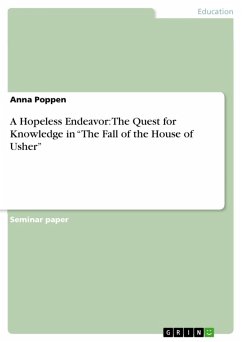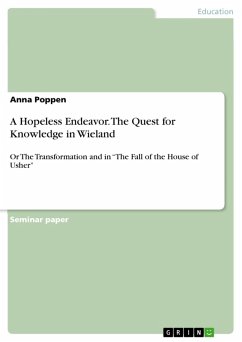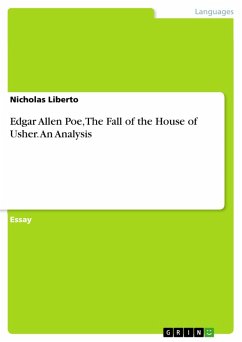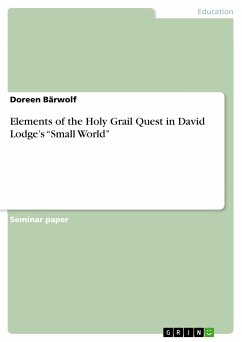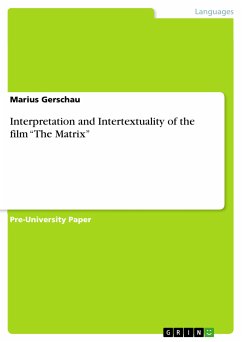Seminar paper from the year 2012 in the subject Didactics for the subject English - Literature, Works, grade: 1,0, Carl von Ossietzky University of Oldenburg, language: English, abstract: The short story "The Fall of the House of Usher" is one of Edgar Allan Poe's most popular and most interpreted texts. Up to today, literary scholars argue about the proper meaning of the story. The text has been interpreted as a story of the supernatural, a tale of insanity, as a representation of romantic art, as a vampire story or as a text about incestuous love. Most interpretations aim at finding answers to the major questions raised in the short story. Scholars have tried to find reasons for the crash of the mansion, for Roderick's disease, for Madeline's death, for the supernatural vapour around the house, and many other issues that the story leaves open. However, a general answer to all the questions has not yet been found. In the following, I will prove that it is not necessary to find an answer to the inexplicable elements of the text, because they are part of the story's message. The chaotic, nonsatisfying ending of "The Fall of the House of Usher" is intended, because the story is about the difficulty or even impossibility of explaining the world. That is why Poe's short story "The Fall of the House of Usher" can be interpreted as part of what Hagenbüchle termed "the epistemological crisis in nineteenth-century American thought". Using the example of Charles Brockden Brown's Wieland, Hagenbüchle argues that at the beginning of the 19th century the foundations of human knowledge were questioned and fell apart. This thesis can be applied to other American authors besides Brockden Brown who also challenged established epistemological assumptions. In the following, I will argue that Edgar Allan Poe shows the limits of epistemology by creating characters who try to acquire knowledge through different approaches, but fail in the end. By doing this, he responds to his cultural and historical background and presents a rather pessimistic view of the American nation. In order to place the short story in its cultural context, the following text will first deal with Poe's role in the post-Enlightenment era and the influence of the American context on his writings. In a second step, I will describe the most important characteristics of different theories of epistemology up to the beginning of the 19th century so as to locate Poe within these theories of knowledge. In order to do so, the role of different epistemological approaches in the short story will be examined.
Dieser Download kann aus rechtlichen Gründen nur mit Rechnungsadresse in A, B, BG, CY, CZ, D, DK, EW, E, FIN, F, GR, HR, H, IRL, I, LT, L, LR, M, NL, PL, P, R, S, SLO, SK ausgeliefert werden.

